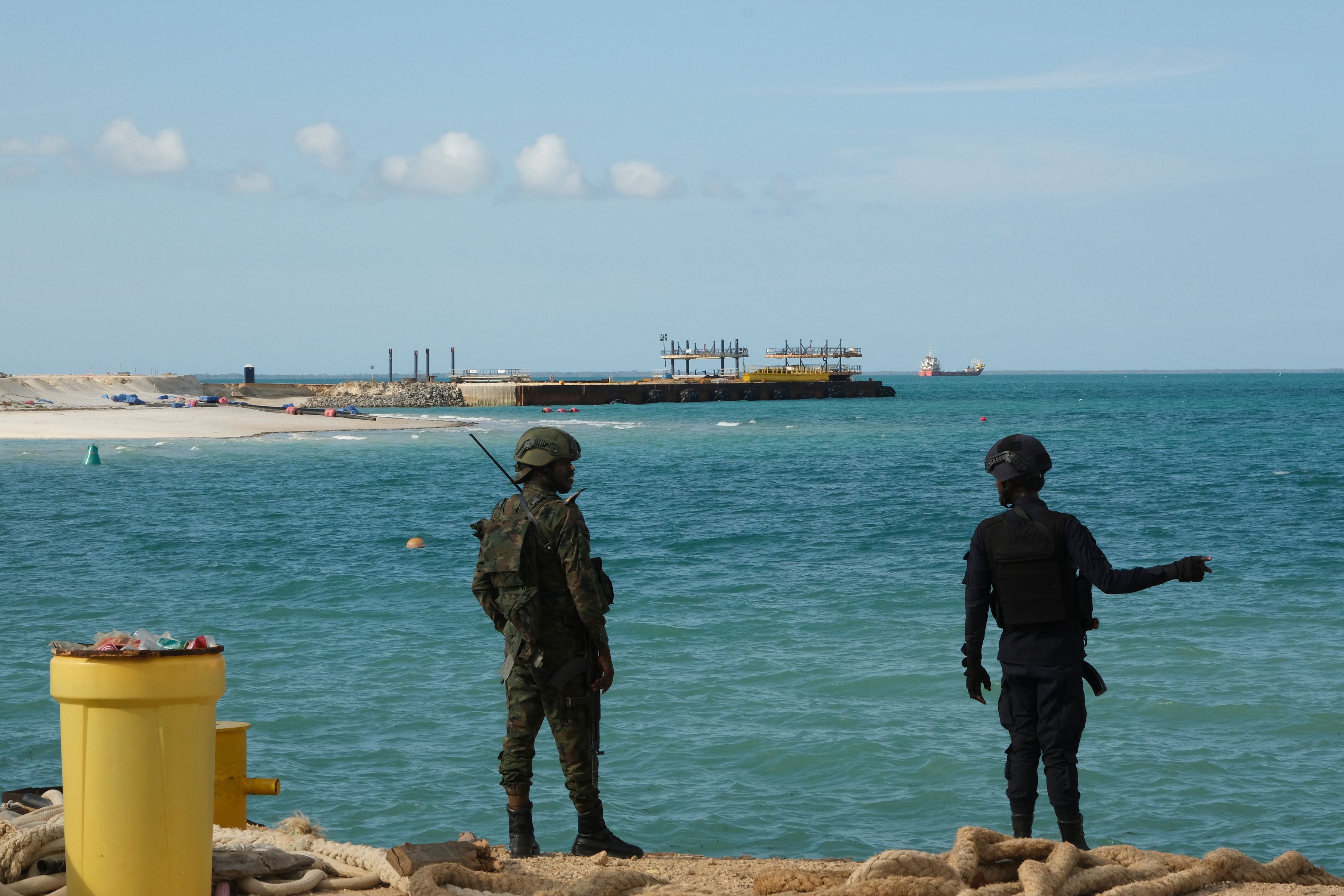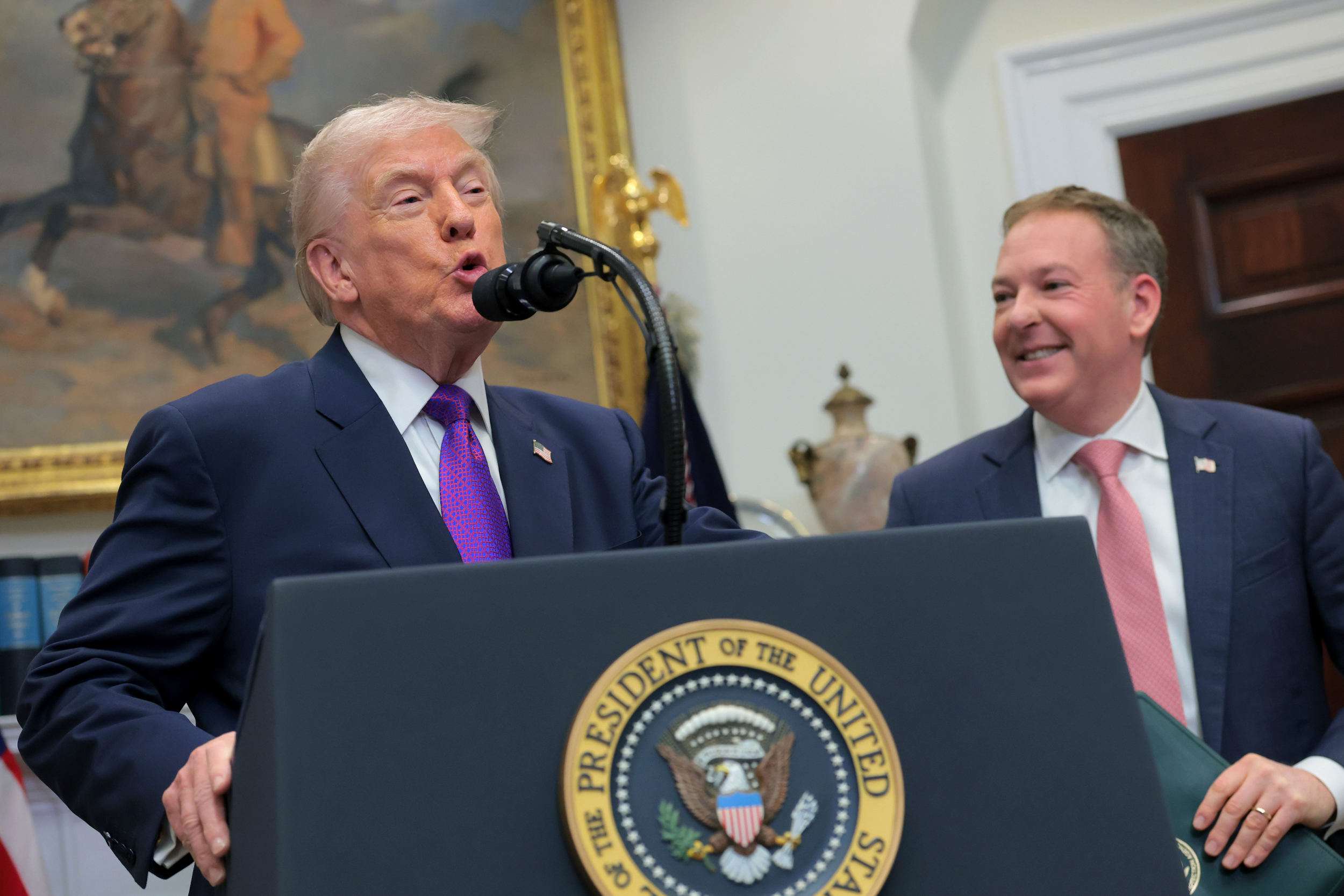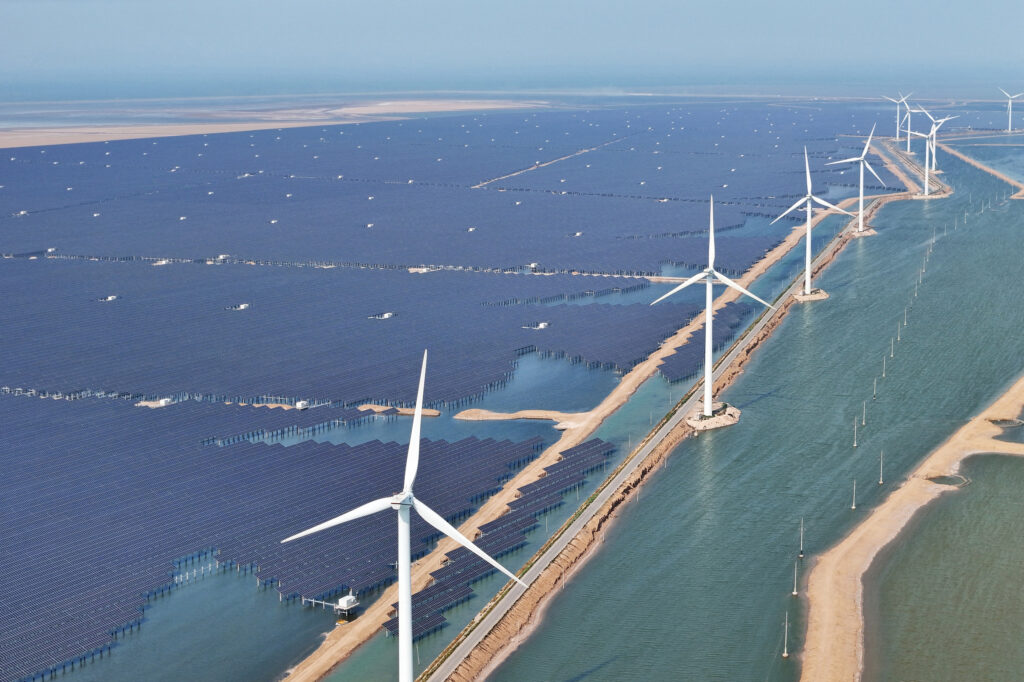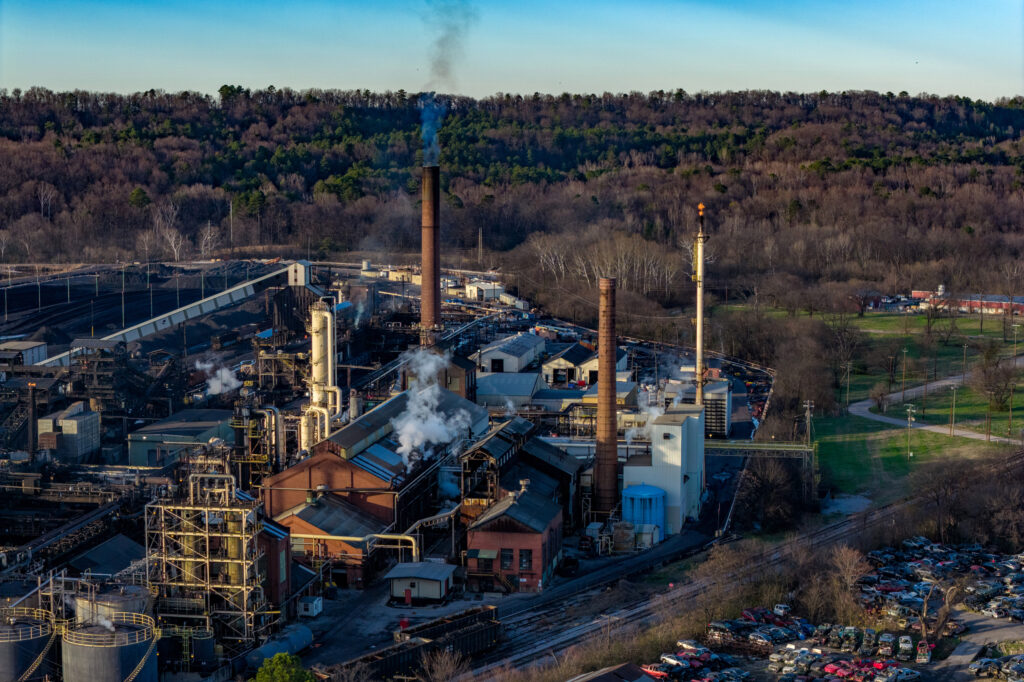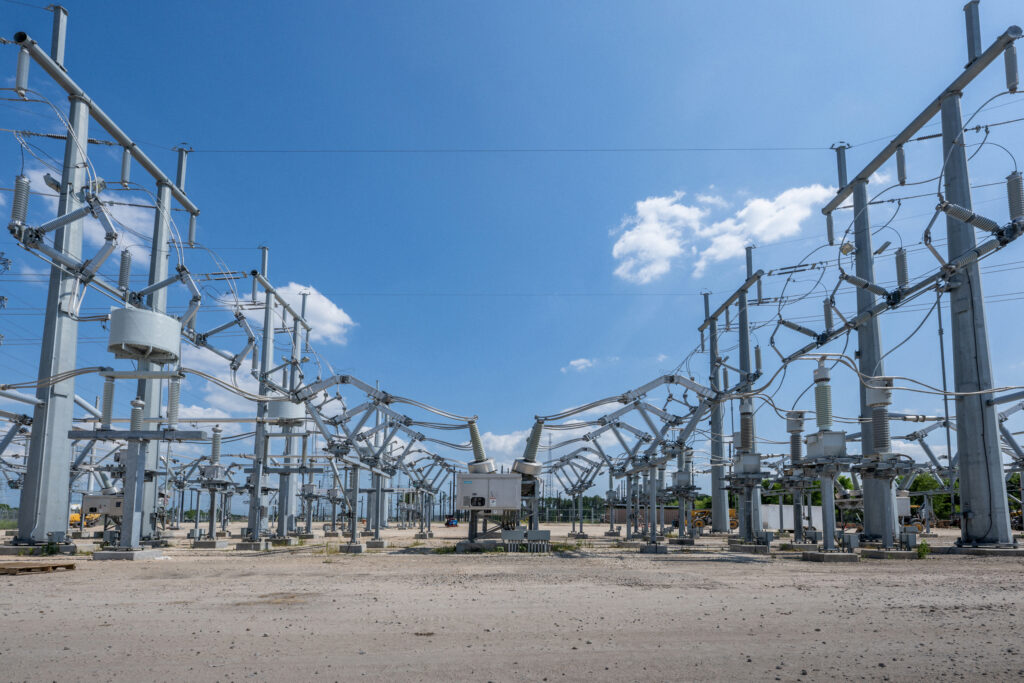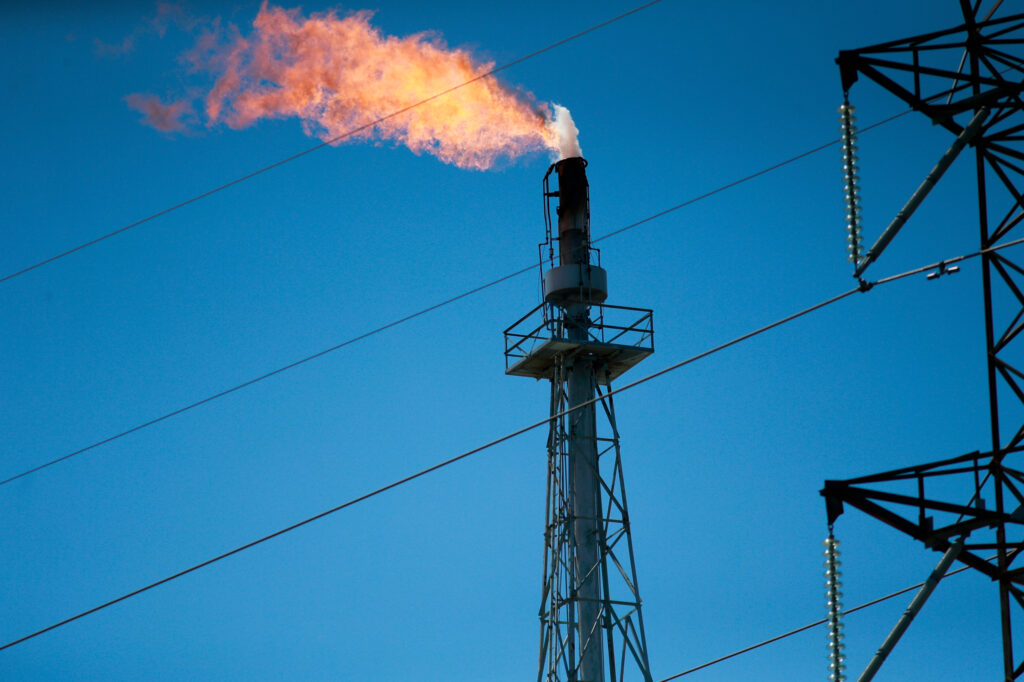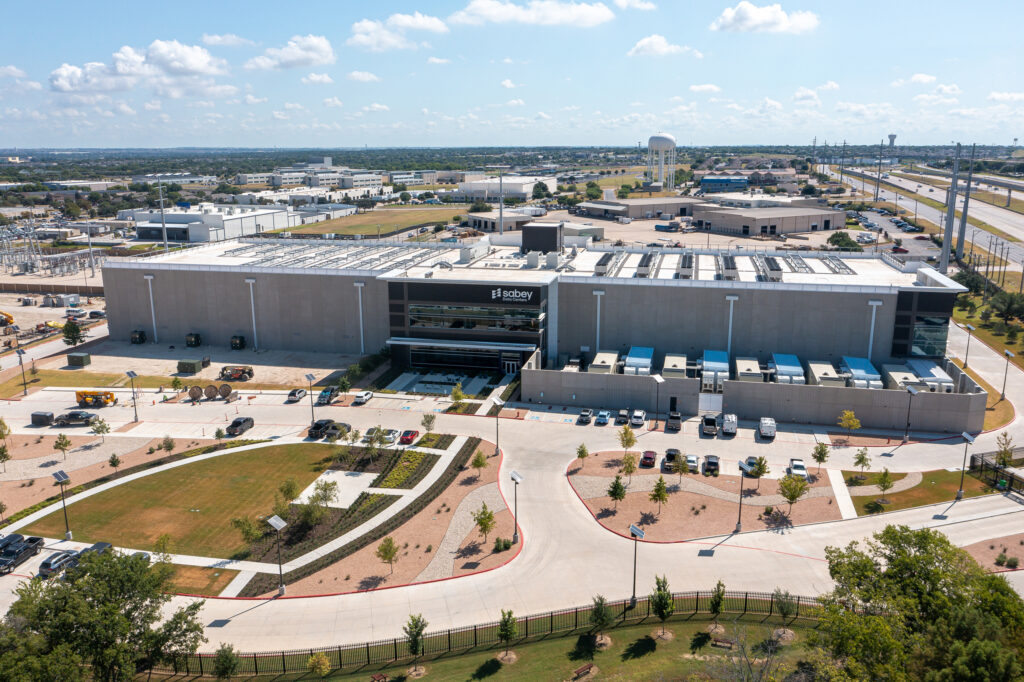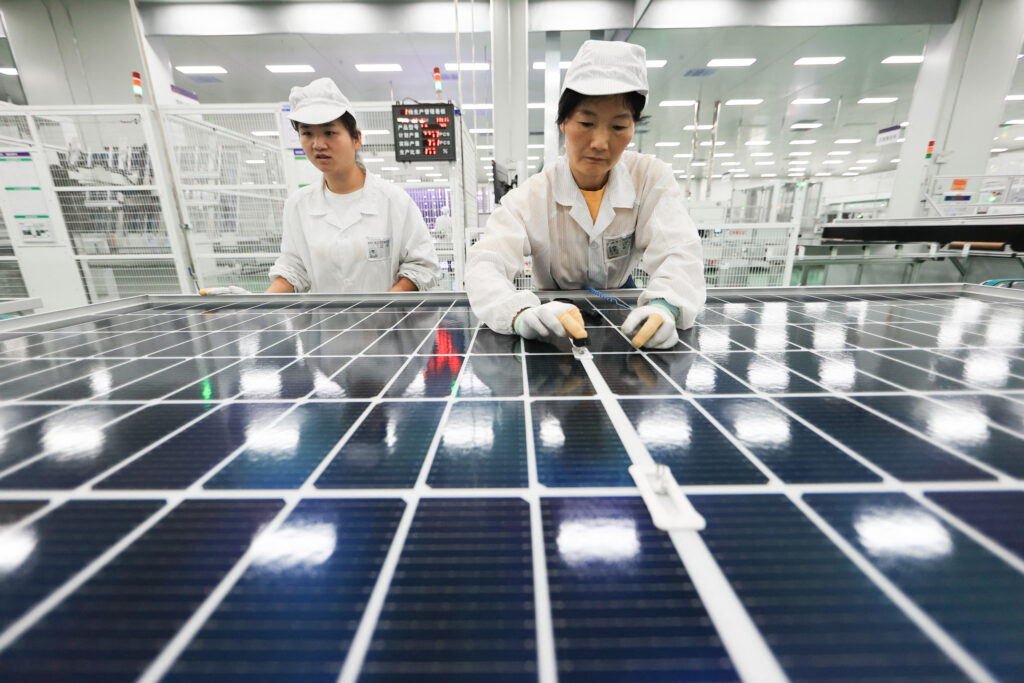The U.S. Department of Energy has granted conditional authorization for a contested project to export liquified natural gas in southwest Louisiana, potentially the first in a string of such moves in the second Trump administration.
At the beginning of last year, the Biden administration temporarily paused all pending applications for permits to export more LNG to countries that don’t have free trade agreements with the U.S., a step celebrated by environmental advocates worried about the climate and public health consequences of the terminals. These projects are major investments meant to run for decades.
Eight such terminals already operate in the U.S. Another eight new sites or expansions are under construction, and a dozen more have approval to start development, according to the Federal Energy Regulatory Commission. Some of these projects still require approval from the Energy Department to export to all countries.
On his first day in office, President Donald Trump signed an executive order that included a directive for the agency to restart its review of these applications.
We’re hiring!
Please take a look at the new openings in our newsroom.
See jobs
Friday’s authorization for Commonwealth LNG is the first of its kind issued by the department after the executive order. Environmental and consumer-rights activists argue it will increase costs for U.S. consumers, and not just because the mounting natural disasters brought by climate change are so expensive.
“The Trump administration is ignoring clear science in order to give more handouts to the fossil fuel industry, while driving up prices for everyday Americans,” said Jamie Henn, director of the communications nonprofit Fossil Free Media. “We’re going to see a growing backlash to this administration’s policies not just from the climate community but from anybody who cares about their energy bills.”
Commonwealth LNG, owned by Kimmeridge Texas Gas LLC, is expected to export 1.2 billion cubic feet of gas per day to markets in Asia and Europe.
“Today’s actions demonstrate that President Trump is prioritizing the American energy industry and we are both pleased and grateful to have achieved these important regulatory objectives,” said Commonwealth CEO Farhad Ahrabi in a statement on Friday.
In its decision, the Energy Department referenced the executive order, but also noted that it must complete the LNG export study process kicked off by the Biden administration last year, which includes a comment period ending March 20. The project also requires final approval from the Federal Energy Regulatory Commission.
Moneen Nasmith, a senior attorney at Earthjustice, noted that these restrictions mean the company cannot yet move ahead with the project.
“It does not authorize them to move forward, nor does it provide any real indication of how quickly DOE will move on getting to a final order,” she said.
Still, Nasmith noted that of the applications for permits currently pending at the agency, Commonwealth was submitted first—five years ago—so the conditional permit could be the first in a string of conditional approvals.
“To the extent that DOE is feeling the pressure to act more quickly because of the executive order, we may see more similar conditional orders to come,” Nasmith said.
In a statement on the conditional authorization, Energy Secretary Chris Wright said that LNG exports are critical to Trump’s agenda for American “energy dominance.”
“Today marks one of many steps that DOE will be taking to assure our future as a reliable energy supplier to the world and resume regular order to our regulatory responsibilities over natural gas exports,” Wright said.
In its decision, the Energy Department said that Commonwealth’s exports are likely to “yield economic benefits” domestically, and are unlikely to increase gas prices for U.S. consumers. But that contradicts findings by the agency in a study released last year that increased gas exports will likely raise domestic electricity costs and residential gas prices. Former energy secretary Jennifer Granholm noted that the study outlined a “triple-cost” increase to U.S. consumers as LNG exports rise: through domestic gas prices, electricity prices and the pass-through of higher costs to U.S. manufacturers.
This story is funded by readers like you.
Our nonprofit newsroom provides award-winning climate coverage free of charge and advertising. We rely on donations from readers like you to keep going. Please donate now to support our work.
Donate Now
In 2023, the consumer-rights group Public Citizen used U.S. Energy Information Administration data to calculate that LNG exports will saddle domestic consumers with $14.3 billion in higher annual gas costs in 2050. Last year the nonprofit released a report linking LNG exports to higher consumer costs. U.S. household gas costs have increased 52 percent since the nation first started exporting LNG in 2016, a period that also included price shocks amid the COVID-19 pandemic.
“The reality is that exporting more natural gas from the United States drives up the cost for every American,” said James Hiatt, an activist based in southwest Louisiana. “It’s an American-last policy that Trump has implemented, and it’ll only benefit a few already wealthy individuals.”
The U.S. LNG buildout is disproportionately concentrated on the Gulf South, particularly on the border of Louisiana and Texas, and Commonwealth is no exception. The project would sit in Cameron Parish, Louisiana, where residents are already dealing with pollution and ecological harm from Calcasieu Pass, an LNG terminal that has repeatedly violated environmental regulations. The owner of that site, Venture Global, did not immediately respond to a request for comment.
“It’s short term gains for a few on the backs of all of us.”
— James Hiatt, For a Better Bayou
Living near pollutants associated with LNG facilities has been linked to low birth weight, poor lung function, asthma, chronic cardiovascular disease, increased cancer risk and other severe health issues.
Advocates also object to the facility’s projected climate-damaging emissions: The Sierra Club estimates its lifecycle greenhouse gas pollution would total 62 million metric tons of CO2 equivalent per year, akin to 16 coal plants or more than 14 million gasoline-powered cars.
“On a coast that has been decimated by hurricane after hurricane, to put another climate [change]-causing industry right on the Gulf Coast, directly on the beach, it’s just insane,” said Hiatt, who founded the community-based organization For a Better Bayou and was among climate leaders pushing for the halt on LNG export expansion. “It’s short term gains for a few on the backs of all of us.”
On Monday, Venture Global announced that it will begin commercial production at Calcasieu Pass LNG in April. The Calcasieu Pass facility received its final investment decision in 2019, but faced setbacks including manufacturing issues, multiple hurricanes and the COVID-19 pandemic.
The company’s proposed expansion, CP2, has faced significant opposition from local and national advocates who cite detrimental health risks and threats to wetlands and coastal ecology. Local fishermen have said construction of the existing terminal has decimated shrimping and fishing industries.
“These new export terminals, the ones that already exist here, have not benefited the local community whatsoever,” Hiatt said. “All they bring is more traffic and more pollution.”
Earthjustice’s Nasmith emphasized that Venture Global’s announcement is unrelated to the Trump administration’s policies on LNG. But she said it’s not a good sign for environmental or community health that projects concentrated in the same geographical area are moving forward.
“There’s an incredibly damaging and alarming reality that these facilities are … clustered in that particular area of the Gulf,” Nasmith said. “It’s very problematic insofar as we are imposing the costs of this industry in such a concentrated and acute way on such a small part of the country.”
About This Story
Perhaps you noticed: This story, like all the news we publish, is free to read. That’s because Inside Climate News is a 501c3 nonprofit organization. We do not charge a subscription fee, lock our news behind a paywall, or clutter our website with ads. We make our news on climate and the environment freely available to you and anyone who wants it.
That’s not all. We also share our news for free with scores of other media organizations around the country. Many of them can’t afford to do environmental journalism of their own. We’ve built bureaus from coast to coast to report local stories, collaborate with local newsrooms and co-publish articles so that this vital work is shared as widely as possible.
Two of us launched ICN in 2007. Six years later we earned a Pulitzer Prize for National Reporting, and now we run the oldest and largest dedicated climate newsroom in the nation. We tell the story in all its complexity. We hold polluters accountable. We expose environmental injustice. We debunk misinformation. We scrutinize solutions and inspire action.
Donations from readers like you fund every aspect of what we do. If you don’t already, will you support our ongoing work, our reporting on the biggest crisis facing our planet, and help us reach even more readers in more places?
Please take a moment to make a tax-deductible donation. Every one of them makes a difference.
Thank you,






